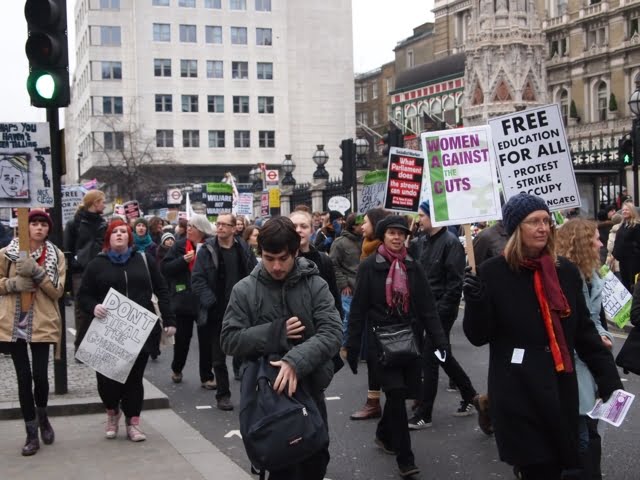News last week of 27 higher
education institutions lowering their 2012/2013 tuition fees to £7500
appears to have failed to have had a great impact on students/university
applicants. This could partly be put down to the lower fee still being
of a similar level to those being charged by other universities; many
potential students feel that they are going to be in so much debt when
they leave university that £4500 will not make much difference.
News last week of 27 higher
education institutions lowering their 2012/2013 tuition fees to £7500
appears to have failed to have had a great impact on students/university
applicants. This could partly be put down to the lower fee still being
of a similar level to those being charged by other universities; many
potential students feel that they are going to be in so much debt when
they leave university that £4500 will not make much difference.
Another important point to underline is the lack of change in outlook
shown by the institutions that have chosen to lower their fees.
Following the government announcing its plans to raise fees to a maximum
of £9000 for 2012 entry in October of last year Britain witnessed the
biggest demonstrations since the Iraq war with 50,000 students taking to
the streets of London on November 9th 2010. Despite weeks of protest,
which were met with heavy police suppression, the coalition went on to
pass the legislation so as to allow for tuition fees to nearly triple.
This came as little surprise; it was clear from the beginning that the
government was determined to cut state funding of higher education as
part of its wider austerity plans to cut services in order to pay for a
crisis caused by the contradictions of capitalism. However, in
formulating the plans for tuition fees Cameron and co did not consider
how many universities would opt to charge £9000 and hence how much it
would cost to lend out the money to pay for these fees with no repayment
beginning until 2015.
This has resulted in panic for the coalition which is only heightened
by the increasing discontent from the working class – the biggest
strike in decades is expected to take place on November 30th in light of
proposed changes to public sector pensions. In reaction to both of
these factors the government has decided to offer 20,000 extra places to
universities charging a maximum of £7500. Here we can see that Cameron
understands what he persistently denied in winter of last year:
education is based upon profit under capitalism. In order to cut the
amount of money the government would be required to loan whilst hoping
to appease the working class the coalition aimed to reduce the level of
fee being charged. They were only too aware that the only way
universities would be willing to do this was if they were offered
something in return to heighten profitability-this was given in the form
of extra places. In doing this the coalition hoped to start a “bidding
war” on fees which would again help to achieve their two aims.
 From this it is clear to see that this move is far from being based
From this it is clear to see that this move is far from being based
upon some sort of moral awakening as to the affect that rising fees will
have on working class teenagers’ access to higher education – UCAS
applications are already down by 12% this year. The coalition has not
seen that access to education should be free to all and be based upon
ability, it is simply out for capitalism’s interests. From the reaction
of universities to both this and the original tuition fees announcement
it is clear that they are now more committed to profit than education
with many universities now proposing (and carrying out) cuts in less
profitable departments-typically those based upon the arts.
Opportunities for funding for research and further studies in these
areas is becoming increasingly difficult to obtain and what with the
debt already acquired through an undergraduate degree further study is
being restricted to those students from wealthy families.
As socialists we believe that education should be free for all and
should be based upon intellectual development for each individual
student. Education cannot and should not be based upon profit as it is
under capitalism – students should not have to consider whether it is
worth their money to study for a degree that may not guarantee
employability. We must continue to fight for an end to tuition fees but
we must also understand that they are not simply based upon an
ideological offensive of the Tories. As a profit motivated system – and
one in crisis – capitalism requires profit from all industries,
including education. Therefore only under socialism will we be able to
provide a stable, long lasting, free and comprehensive education service
to all.






